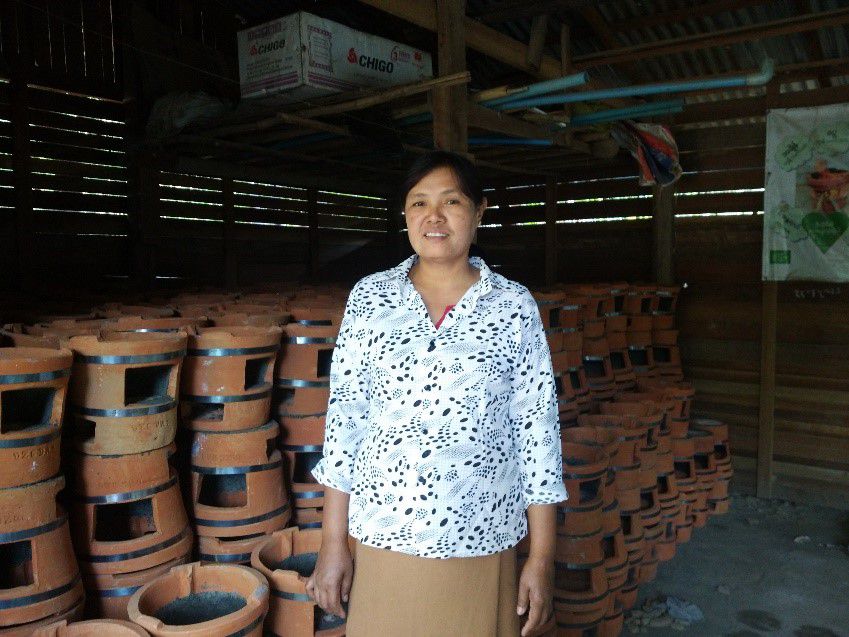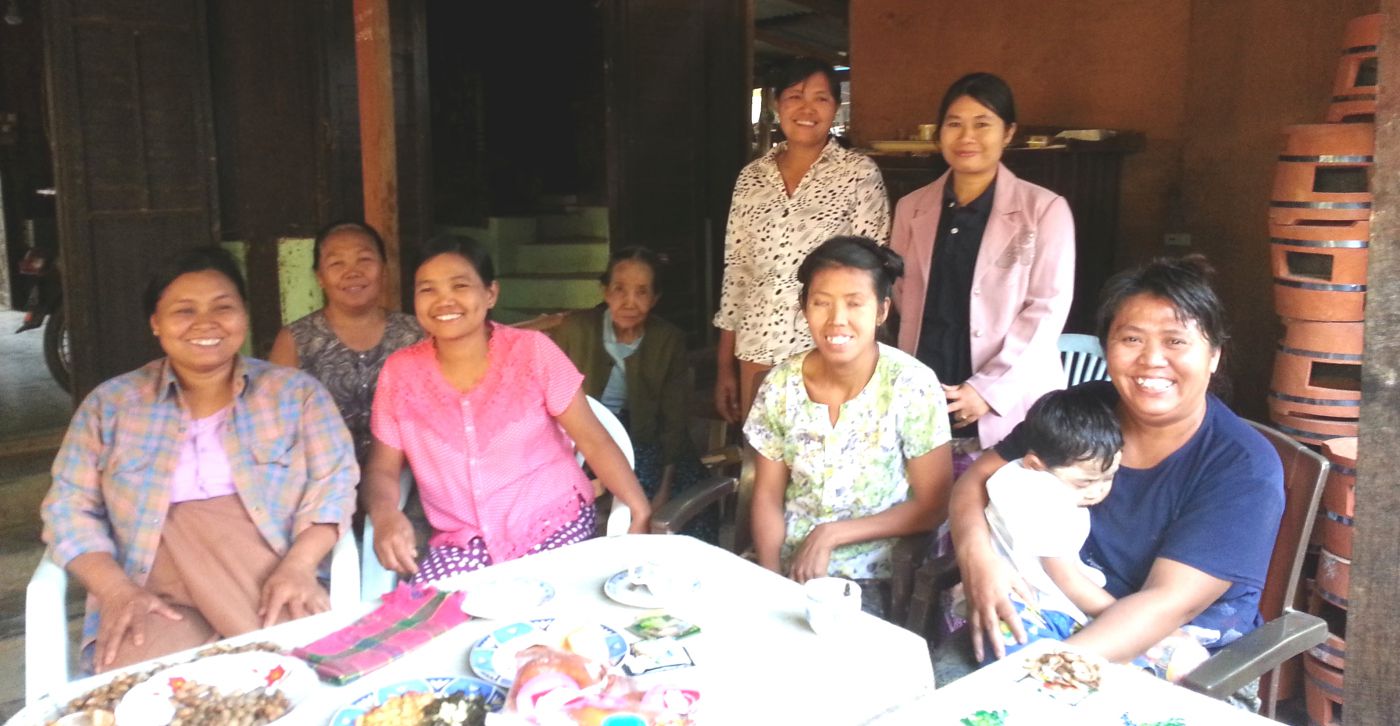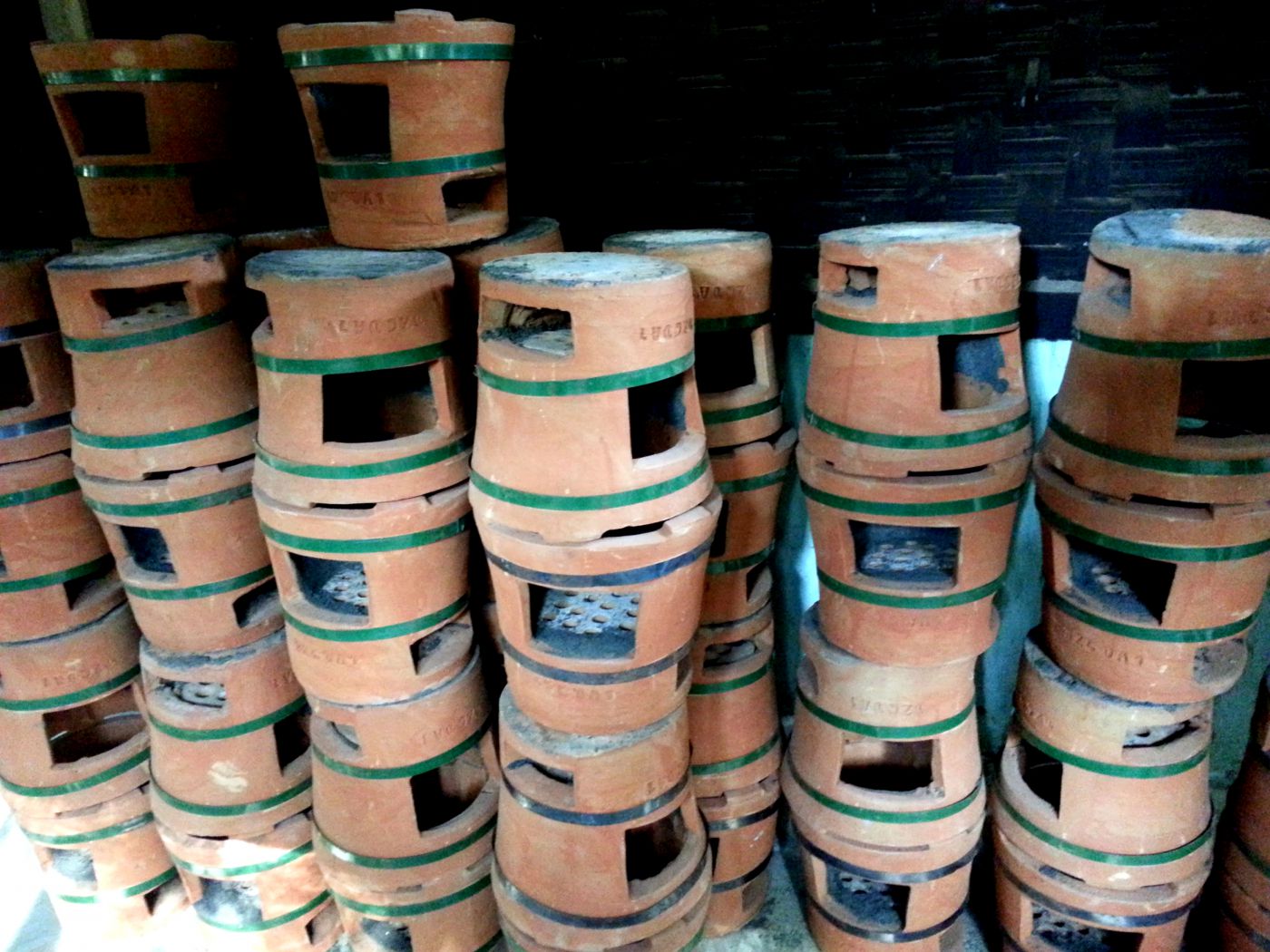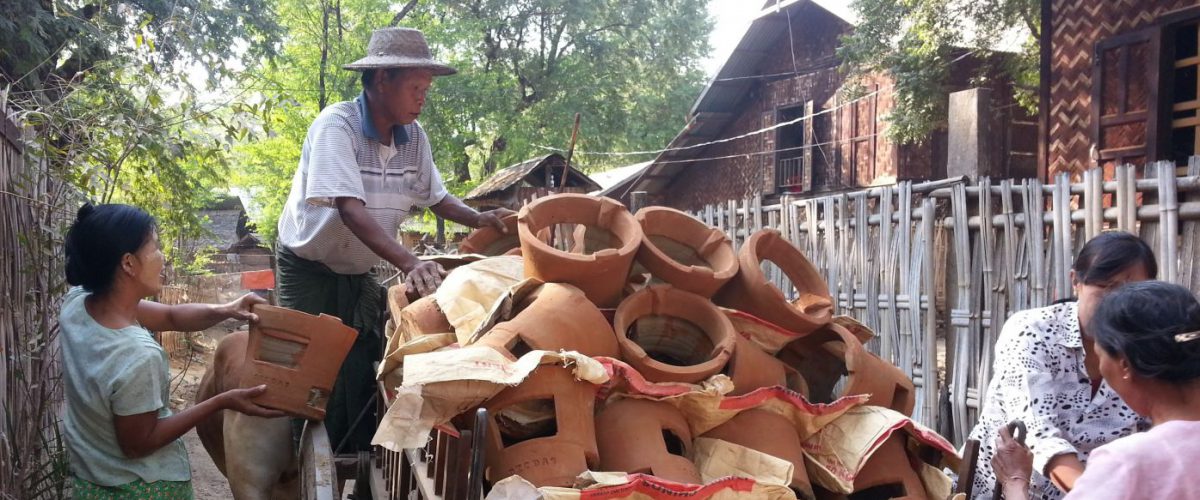A group of remarkable women from Chaung U, Myanmar, redefined adversity as just an inconvenience, with opportunities lurking around the corner. In the process of developing their successful cookstoves businesses, they became role models for other women and demonstrated that perseverance is key for a happy ending.
A 25-year-old has an idea
Chaung U lies in the dry zone of Myanmar. It is known for its fertile soil, paddy, peanuts and vegetables. But the region was hit by floods in 1995. They destroyed the crops and caused serious hardship for local population. Daw Khin Khin Gyi was 25 years old at the time, and there was no obvious way for her to make money.
A pottery exhibition would turn out to be a life-changing event. When Daw Khin Khin Gyi visited the exhibition in the nearby village, she got the idea that she could try to make a living by making pottery herself. She had no prior pottery making skills but she practiced and practiced until she was able to make good quality clay pots. But there was a problem: the market for selling the pots was rather limited.
New skills, new opportunities

A new opportunity presented itself in the form of a training in cookstoves production that was offered in 1995 by the Forest Research Institute Yezin. Along with a few of her neighbours, Daw Khin Khin Gyi attended the training and learned to make A1 cookstoves. These wood burning stoves are made from clay and look similar to traditional cookstoves but their performance in terms of efficiency and emissions is far superior.
After the training, the women continued to improve their technique until they could produce cookstoves of superior quality. Having been involved in the first round of training and having developed their skills and products to such a high level, they did not have to wait long for the first substantial orders. These came from clients such as the United Nations Development Programme and Food and Agriculture Organization, among others. The women were now in business!
They were fortunate to be able to get started without a loan and could also work from home. They had enough space available in the village, the tools required for stove production were not expensive, and the United Nations Development Programme supported them by donating the first set. However, once the state authorities tasked with greening the dry zone also started placing larger orders with them, the limited production and storage space became a major problem. The women therefore decided to split their enterprise into three independently managed units, but they continue to collaborate, inspire each other and share resources.
Necessity breeds resilience
Daw Khin Khin Gyi, who is now 47, was among the initiators of the cookstoves business back in the 1990s. A few years ago she was joined in her enterprise by Daw Mar Mar Aye, now 35. Daw Khin Myo Oo and Daw Cho Cho Aye, both of them in their fourties, were also among the pioneers, having started producing cookstoves in 1995. They are now jointly managing the second enterprise. Lastly, Daw Lwin Lwin Khaing, who is 40 and a mother of two young girls, has been producing cookstoves and managing all operations independently for the last five years.

Each of the three production units employs eight people, so these entrepreneurs are not only supporting themselves but also improving the livelihoods of 24 other villagers.
When talking about the strengths of a woman-ran business, they said that women are more persistent and more willing to make sacrifices and compromise than men because they have fewer options to generate income. That may have been key in getting them through the hurdles of the initial struggle involved in launching an enterprise. Those hurdles were that much greater for the fact that this enterprise is of the kind that would typically stem from family traditions, whereas these women had no such family background nor the associated networks and partnerships to begin with.
Taking the business to a new level
As the orders were increasing through the years, the women – despite never having been trained in running a business – responded with changes in the way they produce cookstoves, manage labour, maintain accounts and manage relationships.

With their long production experience and acquired business acumen, the women are poised to take their businesses to a new high – and they are already at 4,000 ordered cookstoves per month for each production unit!
These five remarkable women are now learning to manage rapid growth. They spend more time on networking and information sharing – something they have learned to do quite well – and they devote increased attention to strategic issues like assessing the market, data and inventory management, and assessing the profitability of different production options. They recently took part in a training on improved stove production, which was implemented by GERES within its Strengthening improved Cookstove Access towards a better quality of Life and Environment (SCALE) project.
Inspiring the next generation
Over the past two decades, the women have changed, and so has the village. There is now electricity and more families live in the area. The women entrepreneurs’ aspirations have grown along with their business savvy. They would like to eventually become distributors of the traditional and standardized A1 cookstoves.
Daw Khin Myo Oo, Daw Cho Cho Aye, Daw Khin Khin Gyi, Daw Lwin Lwin Khaing and Daw Mar Mar Aye have broken stereotypes and shouldered responsibilities that would traditionally be taken on by men. Their community and families are extremely proud of them for doing so, and these remarkable cookstoves entrepreneurs are now an inspiration for numerous other women.
Don’t miss our other inspiring story from Myanmar: A cookstoves producer who never gives up
This post is based on the case study developed by ENERGIA’s Technical Advisor Svati Bhogle, the designated ENERGIA consultant for gender mainstreaming in the GERES’ Strengthening improved cookstove access towards a better quality of life and environment project. She gratefully acknowledges the support received from the GERES Myanmar team in the compilation of the case study.







